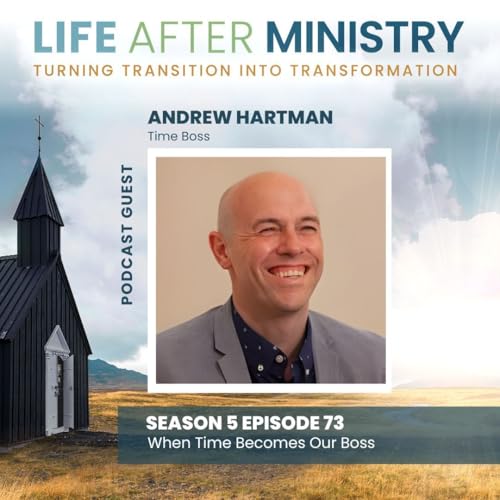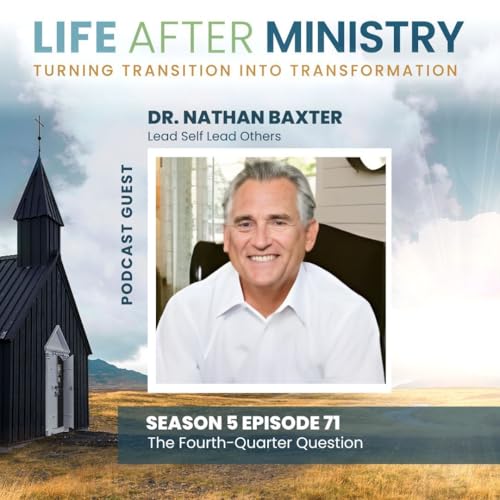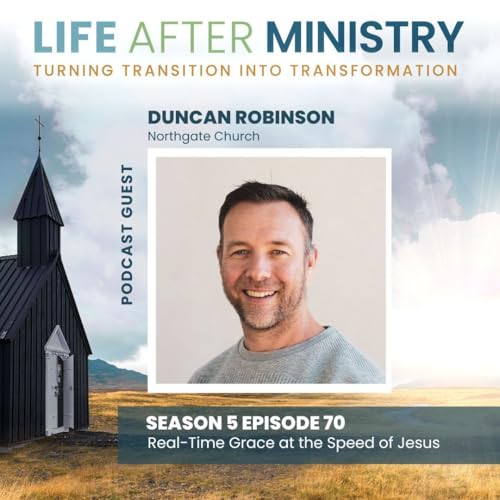Most pastors imagine ministry as a lifelong calling, until something shifts - slowly, painfully, or all at once.
In this episode, Brad Gray and Brad Nelson share their unfiltered stories of leaving pastoral ministry, wrestling through uncertainty, and discovering the faithful presence of God in seasons where nothing made sense.
Their journeys reveal how transitions can expose hidden wounds, force honest discernment, and ultimately reshape our understanding of calling.
From uprooting a thriving teaching pastor role with no job on the other side, to the quiet unraveling that nearly cost a marriage, both men walk through the tension, grief, and surprising grace that comes when God invites you into a future you can’t yet see.
And at the center of their healing is a rediscovery of the Lord’s Prayer - not as a childhood memory, but as a daily blueprint for partnering with God.
This conversation is hope for the discouraged, a mirror for the exhausted, and a companion for anyone wondering whether there is life after ministry. There is. And it might be more expansive than you expect.
Key Takeaways - How God can initiate a transition long before you understand it.
- Why community and spiritual friends are essential during vocational upheaval.
- What happens when the pain of staying becomes greater than the fear of leaving.
- How unaddressed wounds from ministry begin to surface during transitions.
- Why the Lord’s Prayer is a daily blueprint for grounding, clarity, and direction.
- The difference between assignment and calling in a leader’s life.
- How God works slowly, quietly, and faithfully in seasons that feel stalled.
Chapter Markers 00:00 – Introductions and the two Brads 01:10 – Brad Gray’s unexpected call away from a thriving church 03:45 – Moving to Nashville without a plan 07:00 – Brad Nelson’s painful exit from church planting 09:35 – How ministries unravel marriages and identities 12:30 – Discernment, tension, and the pivot point 14:30 – When pain forces change 20:00 – The Lord’s Prayer as a blueprint for life 25:43 – Kingdom, calling, and partnering with God 29:09 – The making of the film and book 33:06 – How churches can use the new resources 38:30 – What they would say to their former selves 42:49 – Is there life after ministry? 43:40 – Final thoughts and blessing
Your story is not over. In fact, this may be the first time in years that God finally has the space to show you who you are beyond what you do.
If you’re navigating a transition, facing a forced resignation, preparing for succession, or simply unraveling quietly under the weight of ministry, reach out. You don’t have to make these decisions alone.
Visit https://ministrytransitions.com to schedule a confidential conversation or to give toward a leader who is carrying more than they can name.
And if you want to explore the formative power of the Lord’s Prayer as a companion in this season, engage the resources at https://thelordsprayer.com. They offer a film, a forthcoming episodic series, and a new book designed to walk with you as God leads you into what’s next.
There is life after ministry. And God is already in the future preparing it for you.
 Dec 31 202514 m
Dec 31 202514 m 30 m
30 m 47 m
47 m 37 m
37 m 48 m
48 m 46 m
46 m 37 m
37 m 55 m
55 m
